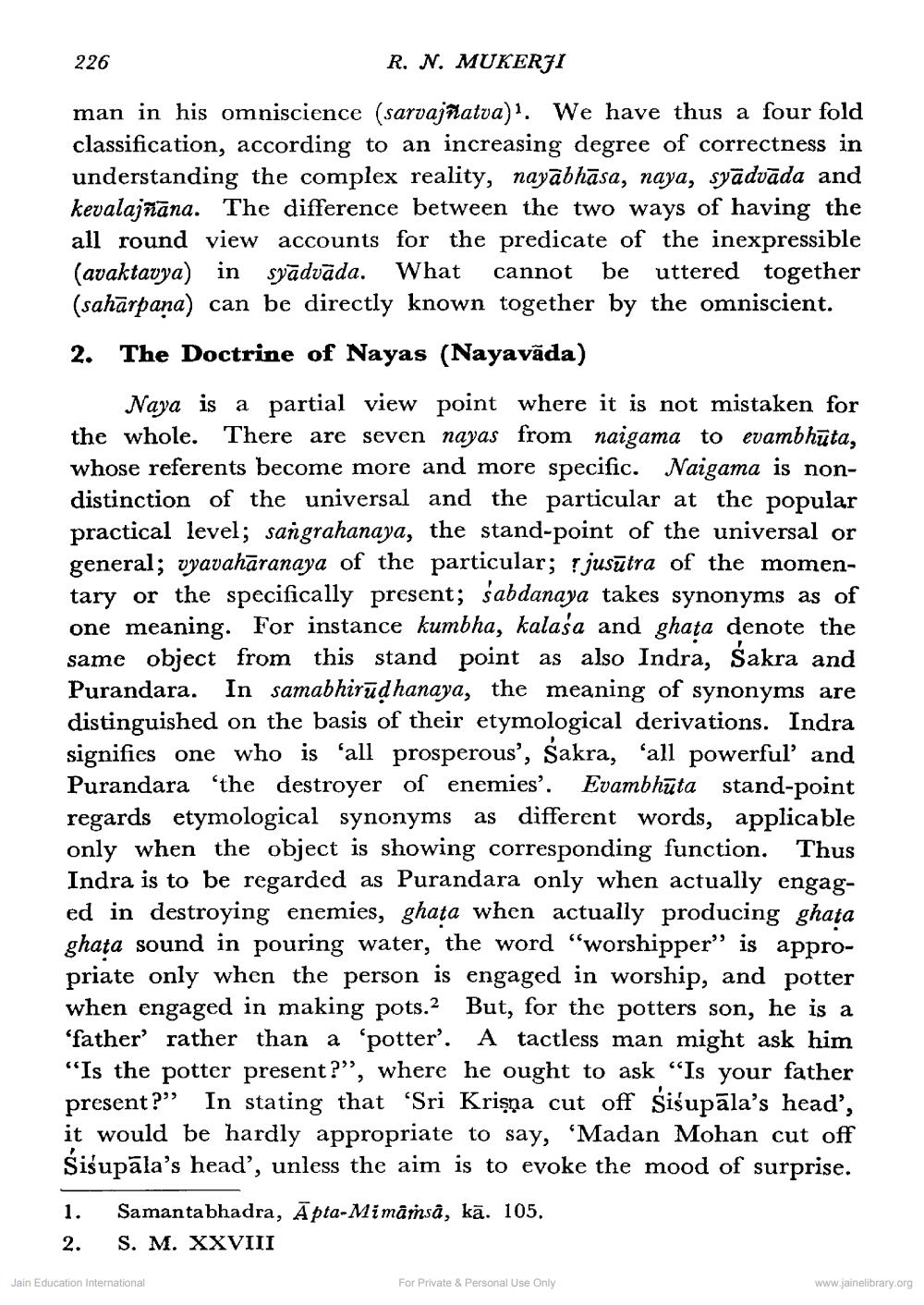________________
226
R. N. MUKERFI
man in his omniscience (sarvajñatva)". We have thus a four fold classification, according to an increasing degree of correctness in understanding the complex reality, nayābhāsa, naya, syādvāda and kevalajñāna. The difference between the two ways of having the all round view accounts for the predicate of the inexpressible (avaktavya) in syādvāda. What cannot be uttered together (sahārpana) can be directly known together by the omniscient. 2. The Doctrine of Nayas (Nayavāda)
Naya is a partial view point where it is not mistaken for the whole. There are seven nayas from naigama to evambhūta, whose referents become more and more specific. Naigama is nondistinction of the universal and the particular at the popular practical level; sangrahanaya, the stand-point of the universal or general; vyavahāranaya of the particular; jusūtra of the momentary or the specifically present; sabdanaya takes synonyms as of one meaning. For instance kumbha, kalaśa and ghata denote the same object from this stand point as also Indra, Sakra and Purandara. In samabhirūdhanaya, the meaning of synonyms are distinguished on the basis of their etymological derivations. Indra signifies one who is 'all prosperous', Sakra, ‘all powerful and Purandara 'the destroyer of enemies'. Evambhūta stand-point regards etymological synonyms as different words, applicable only when the object is showing corresponding function. Thus Indra is to be regarded as Purandara only when actually engaged in destroying enemies, ghata when actually producing ghata ghata sound in pouring water, the word "worshipper” is appropriate only when the person is engaged in worship, and potter when engaged in making pots. But, for the potters son, he is a 'father rather than a 'potter'. A tactless man might ask him “Is the potter present?”, where he ought to ask “Is your father present?” In stating that 'Sri Krişņa cut off Siśupāla's head', it would be hardly appropriate to say, 'Madan Mohan cut off Siśupāla's head', unless the aim is to evoke the mood of surprise. 1. Samantabhadra, Āpta-Mimāmsā, kā. 105. 2. S. M. XXVIII
Jain Education International
For Private & Personal Use Only
www.jainelibrary.org




